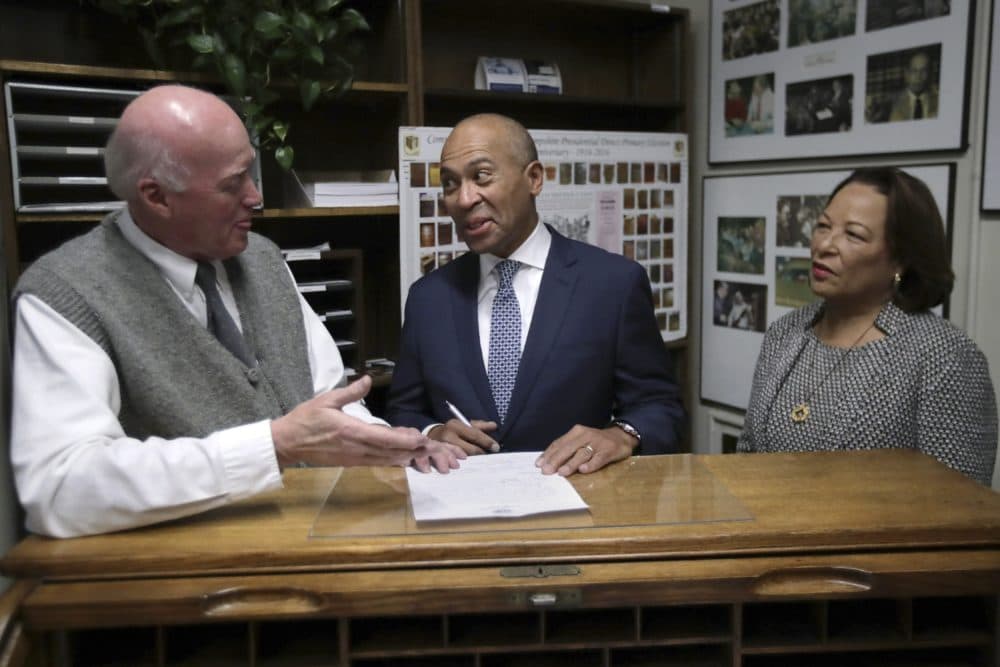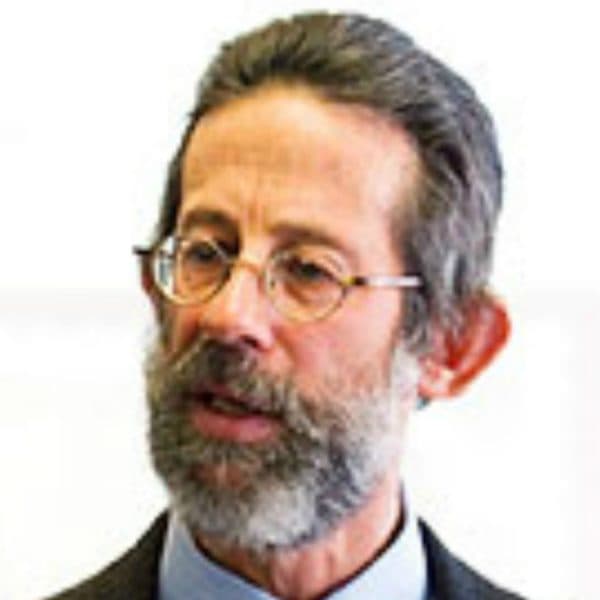Advertisement
Commentary
Deval Patrick Is A Long Shot. But He Does Have A Path To The White House

Deval Patrick is a genuinely gifted politician and he was reasonably successful in his two terms as Massachusetts governor. He fits perfectly into the party’s ideological spectrum: He’s a committed liberal, but he’s not too liberal. He has an appealing life story, complete with a Horatio Alger arc from the South Side of Chicago to success in politics and in the business world. Patrick is the perfect anti-Trump with his calm demeanor and his avoidance of partisan rhetoric.
And yet, the Democratic Party has let out a collective yawn in response to Patrick’s sudden announcement that he is joining the field vying for the 2020 presidential nomination.
Isn’t he the same guy who told WBUR last December that he wasn’t going to run because “the process is cruel”? In fairness, Patrick’s wife, Diane, had just undergone cancer surgery the month before. Still, it was easy to read into this interview that Patrick had concluded that he just wasn’t tough enough to endure the tortuous marathon of a nomination fight.
Patrick’s late entry reflects the wariness of party leaders toward the four candidates currently leading the race: Joe Biden, Pete Buttigieg, Bernie Sanders and Elizabeth Warren. Biden is old, undynamic and frequently embarrasses himself by saying things he later has to take back. Buttigieg is an appealing fresh face, but he’s only 37 years old and has limited experience in government. Sanders is even older than Biden, at 78, and recently had a heart attack. Ideologically, Warren is far to the left of most American voters.
The dissatisfaction with the current candidates is largely an elite-driven concern; most rank-and-file Democrats have found candidates they’re enthusiastic about. Party leaders’ worry is well placed, though.
Long shot as it is, there is a plausible path forward for Patrick.
The “Medicare for All” proposal pushed by Warren and Sanders is particularly problematic for the general election. It’s much more radical than the Affordable Care Act, which helped fuel a Republican landslide in the 2010 congressional elections. Brookings Institution scholar William Galston called Warren’s lengthy Medicare proposal, “the longest suicide note in recorded history.” Party elders love Biden but they view him as no match for the Republican onslaught that has already begun with President Trump’s sobriquet, “sleepy Joe.”
Long shot as it is, there is a plausible path forward for Patrick.
To begin with, it would be advisable for him to skip Iowa, the first step in the nomination process. Iowa is a caucus state, necessitating a considerable number of volunteers to fuel the robust organizational effort required in such a format. At this late date almost all the activists there are already committed to other candidates.
Patrick’s hope is that Biden fades in Iowa, perhaps running third or fourth. With Biden weakened, Patrick can work in New Hampshire to fill the same moderate space in the party. Patrick should have good name recognition in New Hampshire and can focus his campaign there between now and its primary on Feb. 11, eight days after Iowa. Assuming he does well in New Hampshire (top two or three), Patrick can then concentrate on South Carolina with its large African American Democratic electorate.
There are a lot of “ifs” in this scenario. Moreover, Patrick also has to hope that Warren and Sanders run relatively equally early on, so that neither drops out and they continue to divide the lefty vote during these early primaries and caucuses.
Following South Carolina comes Super Tuesday on March 3, when more than a dozen states hold primaries. Even if Patrick is still viable, his late start in the race could be fatal at this point. The states holding primaries that day include California and Texas, huge states with large media markets. Without millions of dollars to buy online and TV advertising, Patrick will be at a considerable disadvantage.
Patrick won’t sell policy solutions as much as he’ll sell himself.
With no campaign infrastructure and little in the way of money in the bank, how will Patrick fund this endeavor? The most feasible option may be super PACs, as they allow wealthy individual donors to spend unlimited sums on advertising outside of the candidate’s own campaign. This may not be the best strategy in a Democratic primary race where small donors have been fetishized, but it may be the only strategy for Patrick.
Finally, there is the question of what Patrick campaigns on? Outside of Massachusetts, relatively few Democrats know much about him, if they know anything at all. Patrick lacks a singular, compelling accomplishment as governor so he may instead emphasize the state of the state. He’ll surely take credit for the prosperity here, the strong business climate and the highly educated workforce that bodes well for the future of the state in a highly competitive world marketplace.
Ultimately, though, Patrick won’t sell policy solutions as much as he’ll sell himself. He’ll put his persona forward, emphasizing his character, his integrity, his compassion and his demeanor. All of this would play well against Trump, whose character is his greatest vulnerability.
Patrick just has to manage to win the nomination first.
